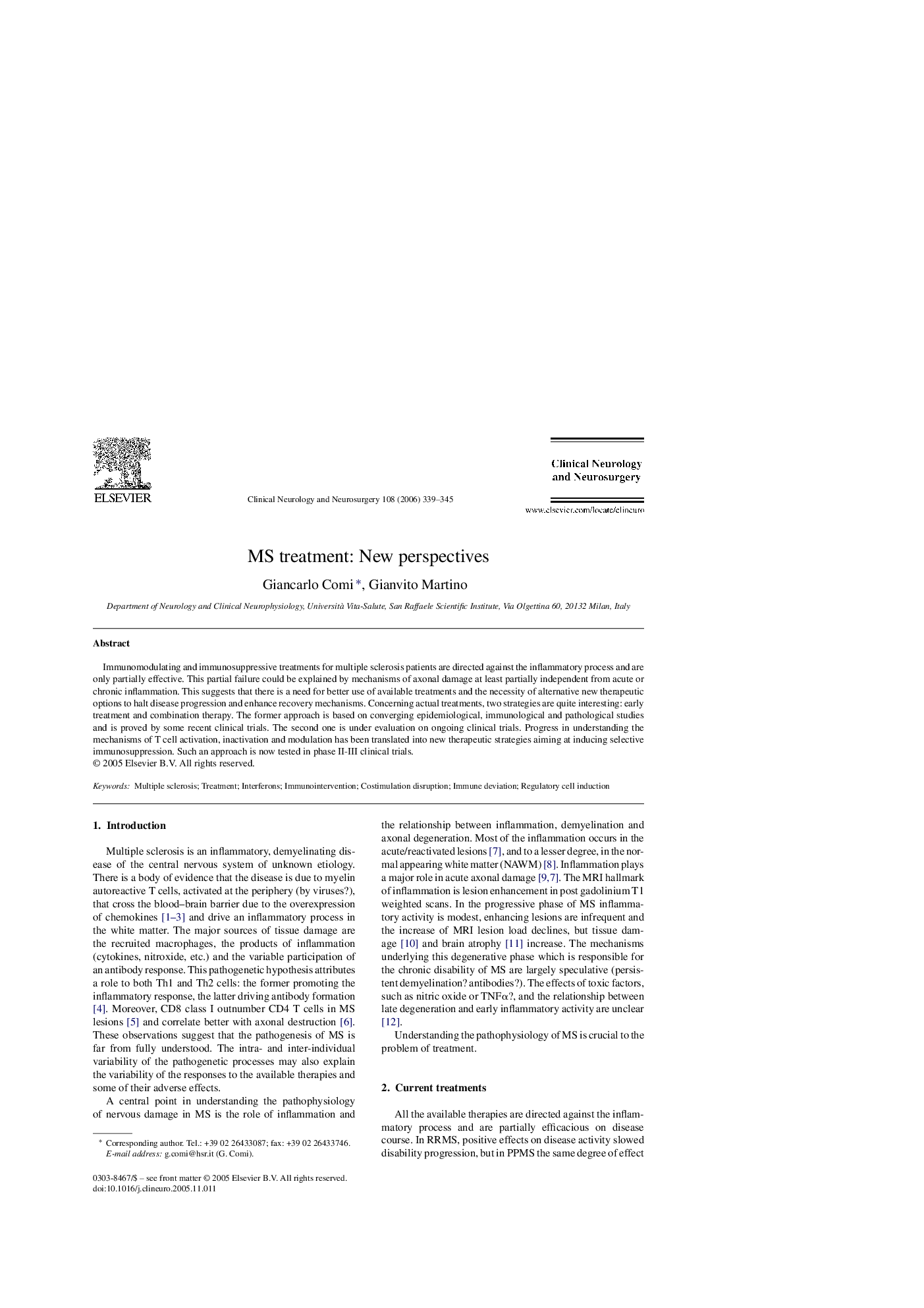| Article ID | Journal | Published Year | Pages | File Type |
|---|---|---|---|---|
| 3042436 | Clinical Neurology and Neurosurgery | 2006 | 7 Pages |
Immunomodulating and immunosuppressive treatments for multiple sclerosis patients are directed against the inflammatory process and are only partially effective. This partial failure could be explained by mechanisms of axonal damage at least partially independent from acute or chronic inflammation. This suggests that there is a need for better use of available treatments and the necessity of alternative new therapeutic options to halt disease progression and enhance recovery mechanisms. Concerning actual treatments, two strategies are quite interesting: early treatment and combination therapy. The former approach is based on converging epidemiological, immunological and pathological studies and is proved by some recent clinical trials. The second one is under evaluation on ongoing clinical trials. Progress in understanding the mechanisms of T cell activation, inactivation and modulation has been translated into new therapeutic strategies aiming at inducing selective immunosuppression. Such an approach is now tested in phase II-III clinical trials.
